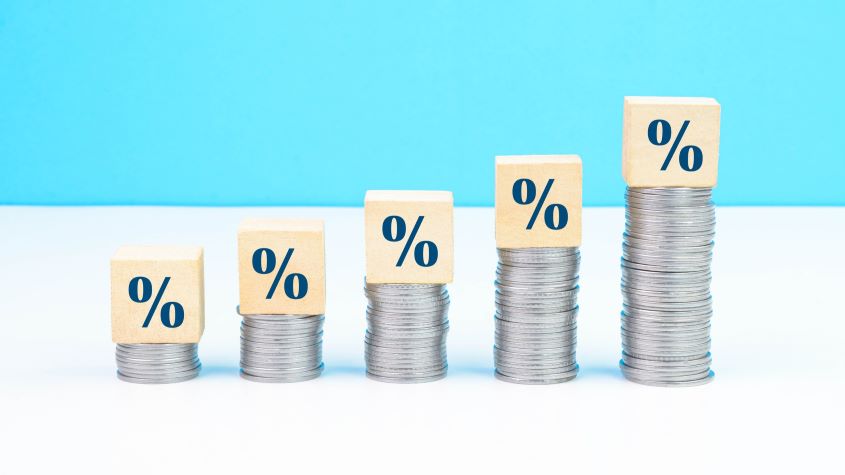Shares Isas: protect your assets from the taxman
Escape capital-gains and dividend taxes on investments ranging from stocks to corporate bonds with a shares Isa. Here’s how to find one that suits you.
Get the latest financial news, insights and expert analysis from our award-winning MoneyWeek team, to help you understand what really matters when it comes to your finances.
You are now subscribed
Your newsletter sign-up was successful
Want to add more newsletters?

Twice daily
MoneyWeek
Get the latest financial news, insights and expert analysis from our award-winning MoneyWeek team, to help you understand what really matters when it comes to your finances.

Four times a week
Look After My Bills
Sign up to our free money-saving newsletter, filled with the latest news and expert advice to help you find the best tips and deals for managing your bills. Start saving today!

If you haven't used up your 2018-2019 Isa allowance (£20,000) yet, and had planned on making some investments in the near future, you should doso with a stocks and shares Isa before the end of the tax year. As with a cash Isa, this is an account thatacts as a wrapper around your investments, allowing them to grow free of tax on capital growth or income.
Note that if you have money in another Isa, such as a cash or innovative finance Isa, this will come out of your total £20,000 allowance. So if you have £5,000 in a cash Isa, you can only put £15,000 into your stocks and shares Isa.
Although an investment Isa is generally referred to as a stocks and shares Isa, that label is somewhat misleading. In addition to shares listed on major stock exchanges around the world, you can hold investment trusts; unit trusts and open-ended investment companies (Oeics); exchange-traded funds (ETFs); and corporate and government bonds in your Isa.
MoneyWeek
Subscribe to MoneyWeek today and get your first six magazine issues absolutely FREE

Sign up to Money Morning
Don't miss the latest investment and personal finances news, market analysis, plus money-saving tips with our free twice-daily newsletter
Don't miss the latest investment and personal finances news, market analysis, plus money-saving tips with our free twice-daily newsletter
The fees to consider
You will also be charged for buying and selling investments, so make sure you take those charges into account, too. However, as we've learned in recent surveys asking about the factors that are most important to MoneyWeek readers when they are picking an investment platform, cheap fees on their own aren't enough. Reliable and accessible customer service is also important, as is the availability of awide range of investments. See below forsome recommendations of brokers suitable forvarying circumstances.
Keep in mind that if you want to transfer money from a cash Isa to a stocks and shares Isa you can do so without affecting your annual allowance, but make sure you do it through the formal transfer process (see page 32). You can't just transfer investments held outside an Isa wrapper into a stocks and shares Isa. To do this, you'll have to sell your investments, and then buy them back within the wrapper.
Some brokers will reduce trading fees if you transfer an investment into a regular dealing account on their platform, then sell it to buy back via an Isa. In this situation you need to take into account capital-gains tax. If you are set to breach your allowance (£11,700 for this year, £12,000 for 2019-2020), consider splitting the sales over two tax years, or transferring an investment to a spouse that hasn'tyet used up their own CGT allowance, sothat they can sell it and then buyit back within an Isa.
Which broker to choose
If you're investing a small amount
If you're investing larger amounts
If you're looking for good investment range and customer service
Hargreaves Lansdown's VantageIsa
Note that passive investment giant Vanguard also now runs its own platform Vanguard Investor which allows you tohold Vanguard funds very cheaply. Clearlythis is only appropriate if you are looking to hold their funds. As you might expect, given the company's reputation for being such a low-cost provider, the platform charges at Vanguard are low: there is an annual fee of 0.15% on investments up to £250,000, which is less than half the industry average, as the finance blog Money to the Masses points out. Above £250,000, there is no fee. This means there is a maximum platform fee of £375.
Interestingly, however, it may ultimately be cheaper to buy Vanguard funds through Interactive Investor (or "ii"), says Money to the Masses: ii is the largest platform to operate a fixed-fee model, and charges £22.50 every quarter, or £90 a year, regardless of your portfolio size. Because the underlying fund charge for investing in Vanguard funds is identical onboth platforms, this means that if you invest more than £60,000 in Vanguard funds, then you would be better off doing this via ii.
Get the latest financial news, insights and expert analysis from our award-winning MoneyWeek team, to help you understand what really matters when it comes to your finances.
Sarah was MoneyWeek's investment editor. She graduated from the University of Southampton with a BA in English and History, before going on to complete a graduate diploma in law at the College of Law in Guildford. She joined MoneyWeek in 2014 and writes on funds, personal finance, pensions and property.
-
 Should you buy an active ETF?
Should you buy an active ETF?ETFs are often mischaracterised as passive products, but they can be a convenient way to add active management to your portfolio
-
 Power up your pension before 5 April – easy ways to save before the tax year end
Power up your pension before 5 April – easy ways to save before the tax year endWith the end of the tax year looming, pension savers currently have a window to review and maximise what’s going into their retirement funds – we look at how
